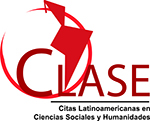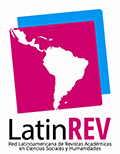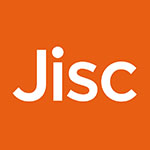Estructurando un laboratorio de interoperabilidad legal desde cero
Resumen
Este artículo determina qué se necesita para crear un innovador laboratorio de interoperabilidad legal desde cero en el ámbito de la Escuela Nacional de Administración Pública y Gobierno Local de Atenas. Su alcance y objetivos son analizados críticamente; y sus módulos, debidamente ponderados. El método de aprendizaje basado en problemas se ha aplicado a un entorno educativo de aprendizaje a distancia sincrónico y asincrónico. En particular, en el contexto del laboratorio, se destaca el uso de LEOS (Legislation Editing Open Software), una herramienta de informática jurídica que se ha desarrollado como solución ISA2 en la Unión Europea. Además, se presenta la relación del laboratorio con los cursos abiertos de interoperabilidad existentes y, un poco más amplio, con el marco europeo de interoperabilidad. Asimismo, se evalúa la herramienta para uso potencial como herramienta de creación por parte de la administración pública helénica. Tanto el laboratorio como el curso han sido evaluados exhaustivamente; y sus resultados, presentados y discutidos con el fin de elaborar nuevos planes para el diseño de cursos y laboratorios de interoperabilidad adicionales.
Descargas
Citas
Chen, C.-H., & Yang, Y.-C. (2019). Revisiting the effects of project-based learning on students’ academic achievement: A meta-analysis investigating moderators. Educational Research Review, 26, 71-81. https://doi.org/10.1016/j.edurev.2018.11.001.
Chinn, D., Hieronimus, S., Kirchherr, J., & Klier, J. (2020). The future is now: closing the skills gap in Europe’s public sector. McKinsey & Company. https://www.mckinsey.com/industries/public-and-social-sector/our-insights/the-future-is-now-closing-the-skills-gap-in-europes-public-sector.
De Graaff, E., & Kolmos, A. (2007). History of problem-based and project-based learning. In De Graaff, E., & Kolmos, A. (Eds.), Management of change (pp. 1-8). Brill Sense. https://doi.org/10.1163/9789087900922.
Dos Santos, A. I., Punie, Y., & Muñoz, J. C. (2016). Opening up Education: a Support Framework for Higher Education Institutions (No. JRC101436). Joint Research Centre. https://doi.org/10.2791/293408.
European Commission. (n.d.) Interoperability Europe Academy. https://joinup.ec.europa.eu/collection/digital-skills-public-sector/solution/interoperable-europe-academy.
European Commission. (2017a). Ministerial Declaration on eGovernment - the Tallinn Declaration. https://digital-strategy.ec.europa.eu/en/news/ministerial-declaration-egovernment-tallinn-declaration.
European Commission. (2017b). New European Interoperability Framework – Promoting seamless services and data flows for European public administrations. http://ec.europa.eu/isa2/sites/isa/files/eif_brochure_final.pdf.
Grover, V., Jeong, S. R., Kettinger, W. J., & Teng, J. T. (1995). The implementation of business process reengineering. Journal of Management Information Systems, 12(1), 109-144. https://doi.org/10.1080/07421222.1995.11518072.
InCiSE. (2019). Results report 2019. https://www.bsg.ox.ac.uk/sites/default/files/2019-04/InCiSE%202019%20Results%20Report.pdf.
Kalogirou, V., Stasis, A., & Charalabidis, Y. (2020). Adapting national interoperability frameworks beyond EIF 3.0: the case of Greece. In Proceedings of the 13th International Conference on Theory and Practice of Electronic Governance (pp. 234-243). https://doi.org/10.1145/3428502.3428536.
Koryzis, D., Dalas, A., Spiliotopoulos, D., & Fitsilis, F. (2021). ParlTech: Transformation Framework for the Digital Parliament. Big Data and Cognitive Computing, 5(1), 15. https://doi.org/10.3390/bdcc5010015.
Kouroubali, A., & Katehakis, D. G. (2019). The new European interoperability framework as a facilitator of digital transformation for citizen empowerment. Journal of biomedical informatics, 94, 103166. https://doi.org/10.1016/j.jbi.2019.103166.
Loutsaris, M.A., & Charalabidis, Y. (2020). Legal informatics from the aspect of interoperability: a review of systems, tools and ontologies. In Proceedings of the 13th International Conference on Theory and Practice of Electronic Governance (pp. 731-737). https://doi.org/10.1145/3428502.3428611.
Mateescu G., Stanciu, A., & Blei, A. (2021). Digital transformation of training programs for public administration. Proceedings of the International Conference on Business Excellence, 15(1), 1171-1182. https://doi.org/10.2478/picbe-2021-0109.
Matt, C., Hess, T., & Benlian, A. (2015). Digital transformation strategies. Business & Information Systems Engineering, 57(5), 339-343. https://doi.org/10.1007/s12599-015-0401-5.
Mikroyannidis, A., & Papastilianou, A. (2021). Open educational resources in public administration: a case study in Greece. Open Learning: The Journal of Open, Distance and e-Learning, 1-15. https://doi.org/10.1080/02680513.2021.1950526.
Organisation for Economic Cooperation and Development. (2021). The OECD Framework for digital talent and skills in the public sector. OECD Working Papers on Public Governance (No. 45). OECD Publishing. https://doi.org/10.1787/4e7c3f58-en.
Pagallo, U., Palmirani, M., Casanovas, P., Sartor, G., & Villata, S. (2018). AI Approaches to the Complexity of Legal Systems: AICOL International Workshops 2015-2017: AICOL-VI@ JURIX 2015, AICOL-VII@ EKAW 2016, AICOL-VIII@ JURIX 2016, AICOL-IX@ ICAIL 2017, and AICOL-X@ JURIX 2017, Revised Selected Papers (Vol. 10791). Springer. https://doi.org/10.1007/978-3-030-00178-0.
Papastylianou, A., Stasis, A., Rantos, K., & Kalogirou, V. (2019). Blended learning and Open Courseware for promoting interoperability in public services. In International Conference on e-Democracy (pp. 79-93). Springer. https://doi.org/10.1007/978-3-030-37545-4_6.
Pezziardi, P., & Verdier, H. (2016). Des “start-up d’État” pour transformer en souplesse l’Administration. Le journal de l’école de Paris du management, 120(4), 22-29. https://doi.org/10.3917/jepam.120.0022.
Sovrano, F., Palmirani, M., & Vitali, F. (2020). Deep learning based multi-label text classification of UNGA resolutions. In Proceedings of the 13th International Conference on Theory and Practice of Electronic Governance (pp. 686-695). https://doi.org/10.1145/3428502.3428604.
Valverde-Berrocoso, J., Garrido-Arroyo, M. d. C., Burgos-Videla, C., & Morales-Cevallos, M.B. (2020). Trends in Educational Research about e-Learning: A Systematic Literature Review (2009-2018). Sustainability, 12(12), 5153, https://doi.org/10.3390/su12125153.
Van Laar, E., Van Deursen, A. J., Van Dijk, J. A., & De Haan, J. (2017). The relation between 21st-century skills and digital skills: A systematic literature review. Computers in Human Behavior, 72, 577-588. https://doi.org/10.1016/j.chb.2017.03.010.
Wirtz, B. W., Weyerer, J. C., & Geyer, C. (2019). Artificial intelligence and the public sector—Applications and challenges. International Journal of Public Administration, 42(7), 596-615. https://doi.org/10.1080/01900692.2018.1498103.
Zalavra, E., & Papanikolaou, K. (2022). A wiki-based framework for collaborative learning design in teacher education. Education and Information Technologies, 27, 6407-6435. https://doi.org/10.1007/s10639-021-10874-9.
Derechos de autor 2022 Fotios Fitsilis, Anastasia Papastylianou

Esta obra está bajo licencia internacional Creative Commons Reconocimiento-NoComercial-SinObrasDerivadas 4.0.
Esta licencia permite copiar, distribuir, exhibir y representar la obra siempre y cuando se reconozca la autoría y se cite la obra de la forma adecuada. No se permite el uso comercial de la obra original ni la generación de obras derivadas.
Los autores garantizan a la Revista Política Austral el derecho de ser la primera publicación del trabajo.




































